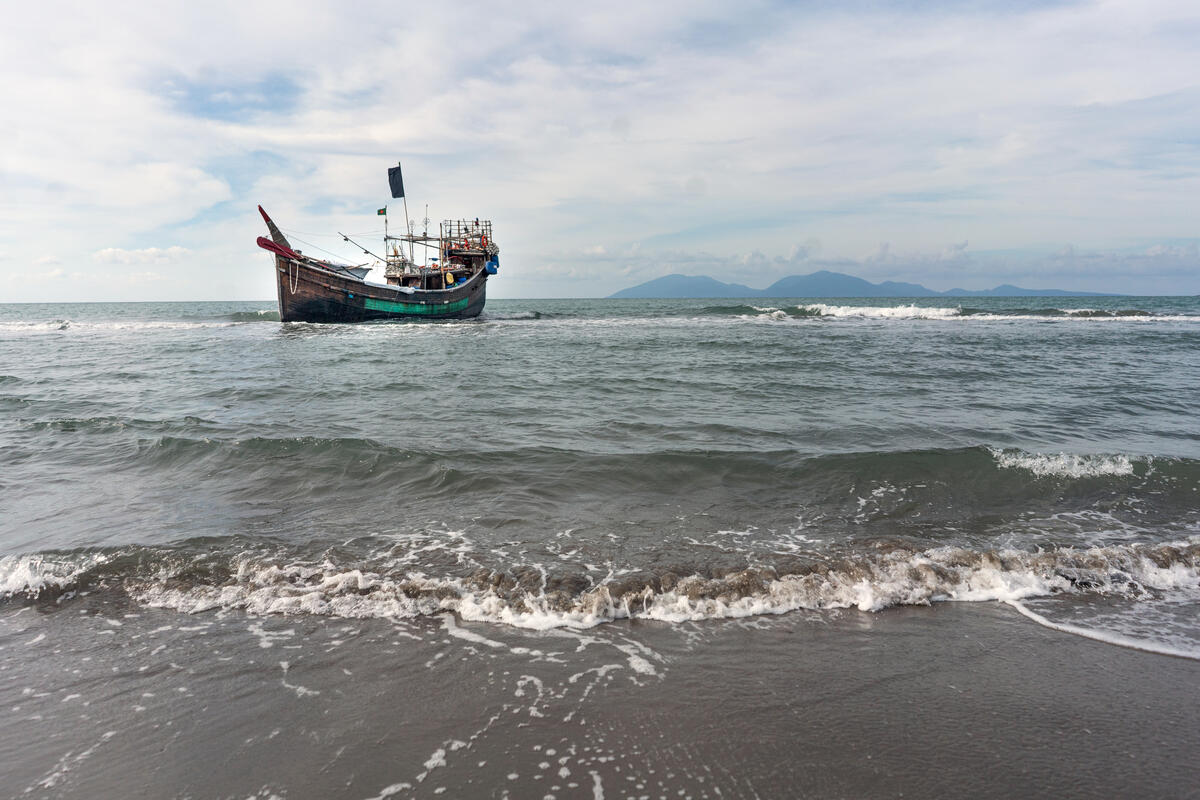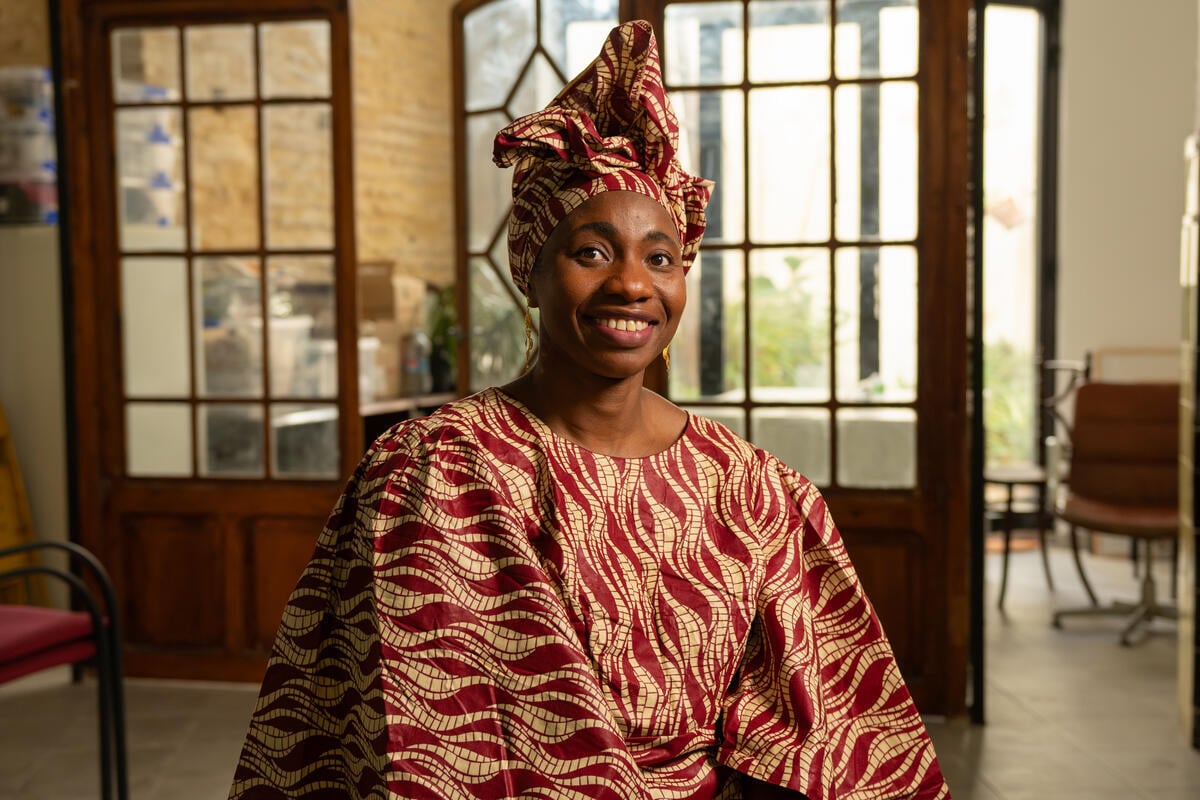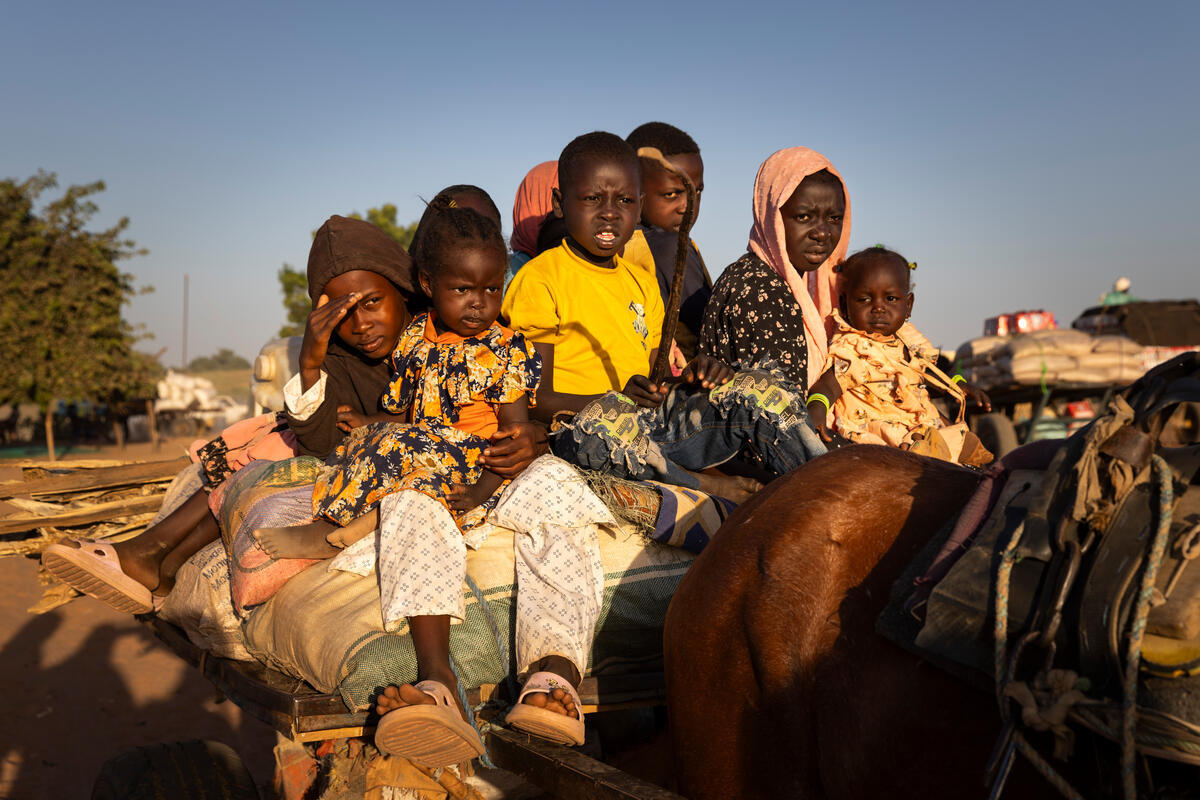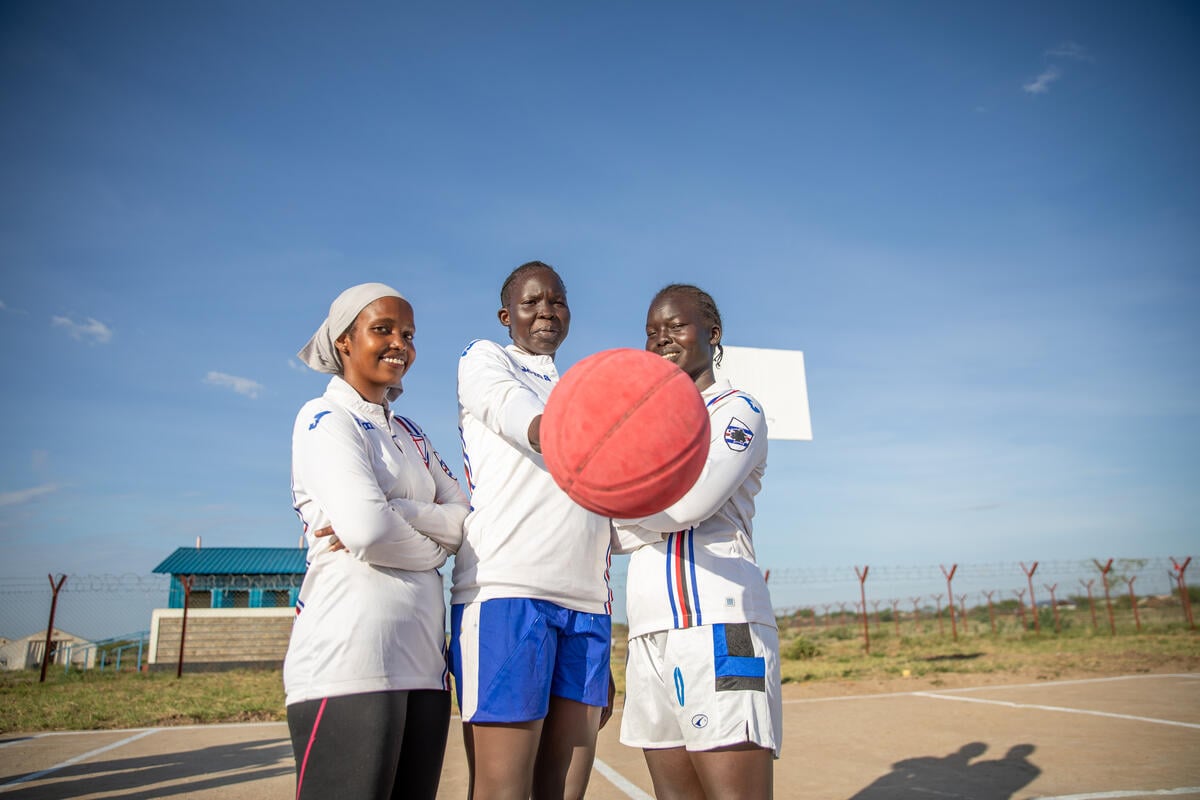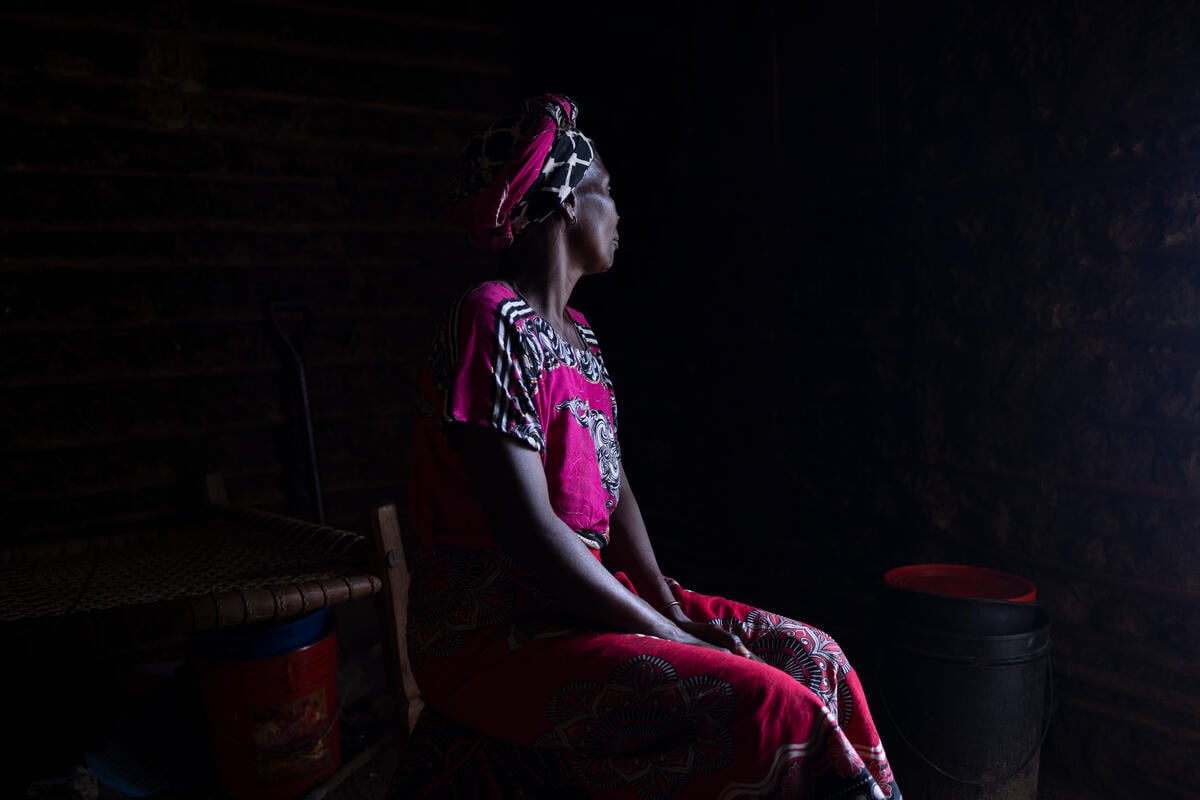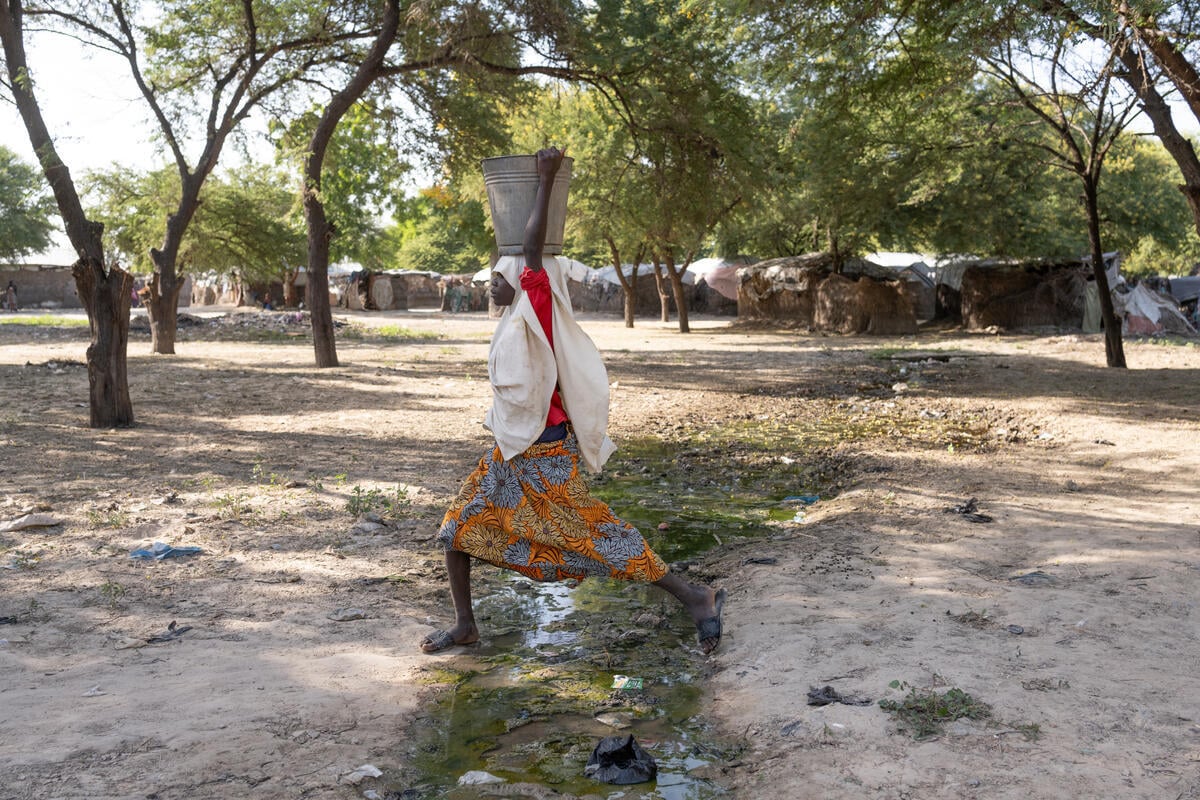As Sudan war drags on, millions still languish in displacement camps
As Sudan war drags on, millions still languish in displacement camps
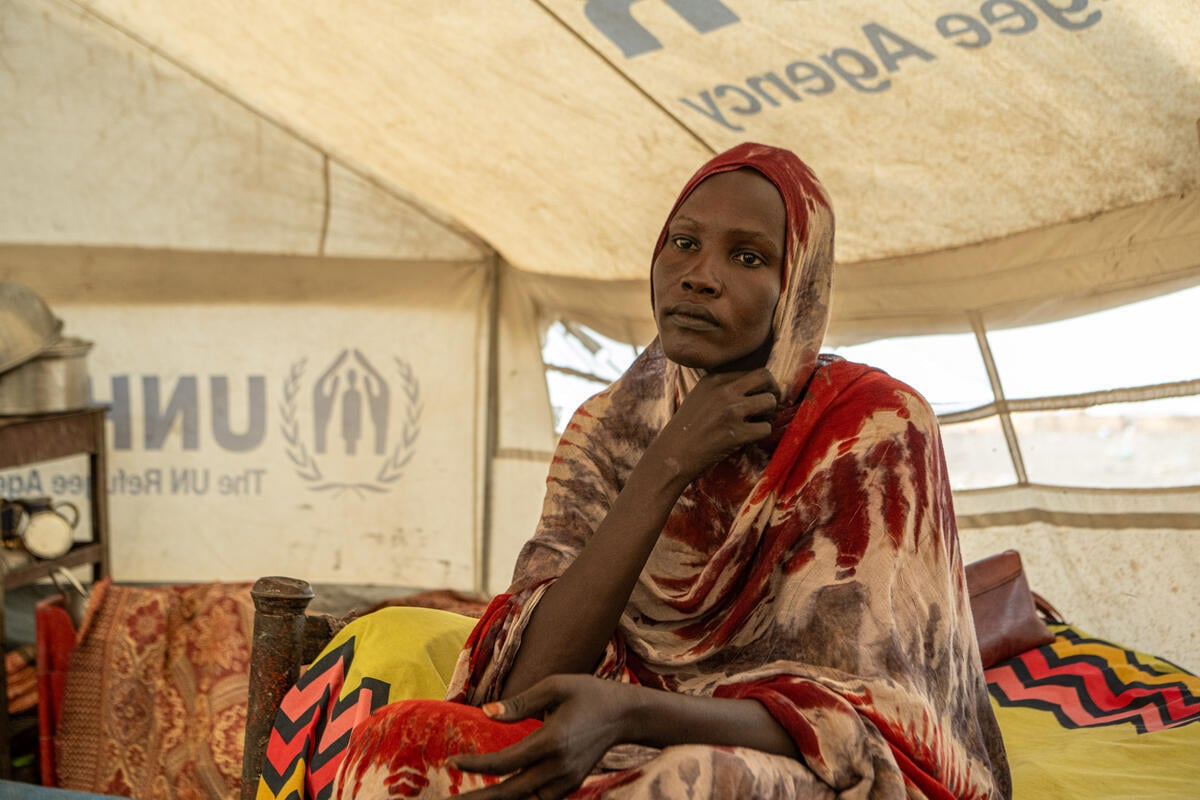
Nyapuot Riak Dup, a South Soudanese refugee displaced from Omdurman city in Sudan, is now living in Alagaya camp in Sudan's White Nile State.
"Our house was under construction. It had no roof, so I hid under the stairs,” she said. “I was very frightened … but thank God, we survived.”
She and her husband grabbed a few essentials and fled with their seven children and her 70-year-old mother. It was the start of a harrowing two-day journey to safety.
Nyapuot described the horrific scenes they witnessed while escaping the city, which had been transformed into a battleground. “What we saw on the streets of Khartoum was extremely disturbing,” the 33-year-old mother said, pausing to cover her eyes with her headscarf. “There were so many bodies lying on the road. The whole city was in ruins.”
“I kept on crying until we left the city,” she added. “There was a lot of looting and destruction. Our bus driver ensured that he would not stop for anyone – to protect us from the looters. He saved our lives.”
More than a year since deadly fighting erupted between two rival military factions in Sudan, more than 9 million people have been forced to flee their homes, including nearly 2 million people who have sought safety in neighbouring countries, mainly Chad, Egypt and South Sudan.
Nyapuot and her family eventually reached Alagaya – a camp near Kosti city in Sudan’s White Nile State originally built in 2014 to host refugees fleeing conflict in South Sudan and now home to 61,000 refugees.
Nyapuot's parents originally fled conflict in South Sudan in the 1980s and settled in Khartoum, where she was born. But with few connections to her parent’s home country, Nyapuot prefers to remain in Sudan. “I hope to return to Khartoum when the fighting stops, but in the meantime I will stay here.”
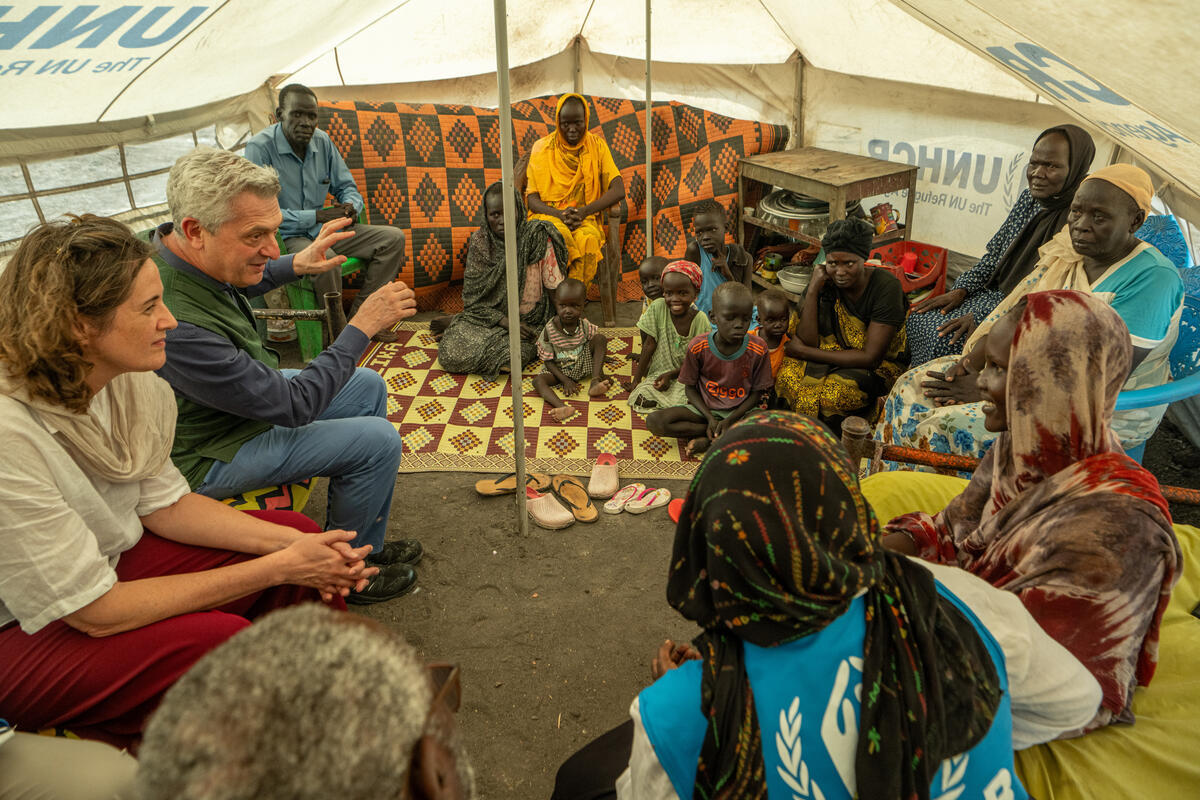
UN High Commissioner for Refugees Filippo Grandi (centre left) meets South Sudanese refugee Nyapuot (centre right) and her family in Alagaya refugee camp in Sudan’s White Nile State.
Conditions in the camp are dire, with limited access to water, health care and hygiene facilities. Many families living in the camp’s overcrowded tents say they have so little food that they can only cook once a day for their children.
According to the UN, almost five million people in Sudan are at risk of famine. Continuing conflict and insecurity, shattered infrastructure, logistical challenges and the ongoing rainy season mean millions across the country remain cut off from critical life-saving assistance.
Elusive peace
On Thursday – World Refugee Day – UN High Commissioner for Refugees Filippo Grandi concluded a week-long visit to Sudan and South Sudan, during which he met Nyapuot and other refugees, returnees and internally displaced people.
“I chose to be in this region during this important week for us – the week in which we observe World Refugee Day – because South Sudan and Sudan are two countries bound by history and both have hosted refugees from other countries due to the multiple conflicts that have impacted all the people here,” Grandi said.
“The civilians are the ones that have no responsibility, no fault of their own in this conflict, and yet as so often happens they are the ones paying the highest price.”
The High Commissioner called on the warring parties to end the fighting and allow aid agencies to access people in urgent need of assistance. “Peace is the only solution – so that we can properly help these people and all those to whom we have no access because of the war,” he said.

Filippo Grandi meets Mahamoud Alnaji Teawa (rear centre) and his family at their home in Ajuong Thok refugee camp, Jamjang, South Sudan.
In the South Sudanese border town of Renk, Grandi met Babiker Suliman, a Sudanese refugee father of 10 children who fled El Fasher, capital of Sudan's North Darfur state, in December last year.
“We walked for a week to escape the violence,” said Babiker. “We left everything behind and were separated from our relatives. When we first arrived here, we had to sleep outside on the road. It was windy and difficult; it was particularly difficult for my 90-year-old mother.”
Since the war broke out, more than 150,000 Sudanese refugees and 550,000 returning South Sudanese have entered the country from Sudan. Babiker is among more than 9,000 people currently sheltered at a transit centre in Renk, where new arrivals receive temporary shelter and basic assistance while awaiting onward transport. UNHCR, the UN Refugee Agency, is working with the government to relocate Sudanese refugees to permanent camps and to move South Sudanese returnees back to their areas of origin.
Seeking self-reliance
Mahamoud Alnaji Teawa, 52, and his family were recently relocated from Renk to Jamjang refugee camp, which lies hundreds of kilometres southwest in South Sudan’s Unity State. They fled fighting around their small village west of Omdurman near Sudan’s capital, first arriving in Kosti and later crossing into South Sudan.
As soon as he settled in the camp, Mahamoud opened a small shop using money sent by his brother who lives in the United States. First, he installed a solar-powered charging station where people can come to charge their phones for a fee. He later expanded the business to sell groceries and other foodstuffs.
“We are not hearing gunshots anymore,” said the father of seven. Having escaped the conflict, Mahamoud’s priority is to do what he can to support his family and reduce their dependence on humanitarian assistance.
“I was able to improve my family’s life, including by buying beds, so as you can see we are not sleeping on the floor as before. I want to [use the profit from my business] to supplement the food aid we get from the UN and also to avoid begging people for money, to be self-reliant and get independence.”


